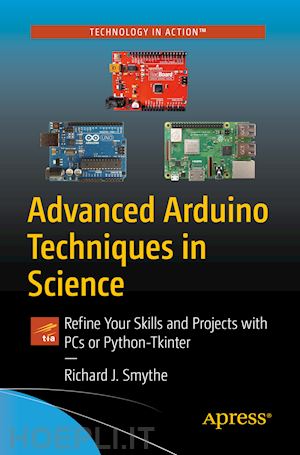
Questo prodotto usufruisce delle SPEDIZIONI GRATIS
selezionando l'opzione Corriere Veloce in fase di ordine.
Pagabile anche con Carta della cultura giovani e del merito, 18App Bonus Cultura e Carta del Docente
Chapter 1: Arduino and Raspberry Pi.- Chapter 2: Development of a Simplified Python Supervisory Control and Data Acquisition System.- Chapter 3:Experimental Work at High Temperatures and High Heats.- Chapter 4 The PID Process Control Algorithm.- Chapter 5: Real Time Data Plotting and Visualization.- Chapter 6: Frequency Measurement.- Chapter 7: Quality Assurance, Quality Control, and Error Analysis.- Chapter 8: Power and Noise from the USB.- Chapter 9: Analytical Front Ends.- Chapter 10: The Kalman Filter.- Appendix 1: List of abbreviations.- Appendix 2: List of Suppliers.











Il sito utilizza cookie ed altri strumenti di tracciamento che raccolgono informazioni dal dispositivo dell’utente. Oltre ai cookie tecnici ed analitici aggregati, strettamente necessari per il funzionamento di questo sito web, previo consenso dell’utente possono essere installati cookie di profilazione e marketing e cookie dei social media. Cliccando su “Accetto tutti i cookie” saranno attivate tutte le categorie di cookie. Per accettare solo deterninate categorie di cookie, cliccare invece su “Impostazioni cookie”. Chiudendo il banner o continuando a navigare saranno installati solo cookie tecnici. Per maggiori dettagli, consultare la Cookie Policy.